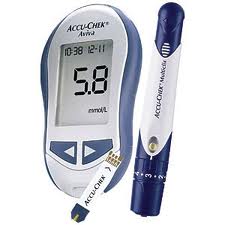April 13th, 2011
Practice-Changing Articles IV
Greg Bratton, MD
Recent advances and discussions in medicine are the cornerstone of Journal Watch. Here’s the fourth installment of the articles that made the biggest impression on me in the past 2 weeks. I hope you enjoy the articles I selected.
Please feel free to leave a comment on the articles — Do you like them? Dislike them? Agree, disagree, state your opinion, and participate in the discussion. And if you know of another recent interesting article, post a link to it. I would love to read it.
Greg Bratton, MD
Articles of Interest:
 Glycemic Control in Hospitalized Patients: Hold On Loosely? – A common topic on Medicine rounds – whether in the ICU or on the wards – is blood sugar. Likely, this is because of the preponderance of diabetics that require hospitalization. However, keeping tight control of their sugar in the hospital might not be as crucial as keeping tight control of it in outpatients. According to this study, intensive insulin therapy (IIT) “… did not improve short-term mortality (at 28 days), and no consistent evidence showed that long-term mortality (at 90 or 180 days), length of stay, or infection rates were better with IIT.” The major side effect of IIT was hypoglycemia, which might be associated higher mortality, dementia, and adverse cardiovascular events. The American College of Physicians have now recommended a target blood glucose level of 140 to 200 mg/dL while in the hospital. And suddenly, I hear nurses in the background scream in excitement as q4hr Accuchecks become a thing of the past!!
Glycemic Control in Hospitalized Patients: Hold On Loosely? – A common topic on Medicine rounds – whether in the ICU or on the wards – is blood sugar. Likely, this is because of the preponderance of diabetics that require hospitalization. However, keeping tight control of their sugar in the hospital might not be as crucial as keeping tight control of it in outpatients. According to this study, intensive insulin therapy (IIT) “… did not improve short-term mortality (at 28 days), and no consistent evidence showed that long-term mortality (at 90 or 180 days), length of stay, or infection rates were better with IIT.” The major side effect of IIT was hypoglycemia, which might be associated higher mortality, dementia, and adverse cardiovascular events. The American College of Physicians have now recommended a target blood glucose level of 140 to 200 mg/dL while in the hospital. And suddenly, I hear nurses in the background scream in excitement as q4hr Accuchecks become a thing of the past!!- Osteoarthritis of the Hip or Knee Raises Mortality Risk – During 14 years, 1163 patients who had symptomatic x-ray confirmed osteoarthritis of the hip and knee were found to have excess all-cause mortality compared with the general population. Similarly, they had excess cardiovascular-, cancer-, and dementia-associated mortality as well. Even as a Sports Medicine doc, I never really put 2 and 2 together when it came to OA. But, in reading this article, it all makes perfect sense. Patients with advanced OA limit their activity to limit pain. In doing so, they become “functionally sedentary,” which equates to increases in weight, cardiovascular risk factors, blood clots, and many other potentially dangerous conditions. In particular, the authors of this article speculate that less physical activity, smoldering inflammation, and use of nonsteroidal anti-inflammatory drugs play a large part in mortality risk. This is definitely something I will implement into my daily discussions with patients about why it is important to address OA aggressively.
- Antihypertensive Treatment in Patients Without Hypertension – Although this was a technically limited study, an interesting approach is brought to light. We all know the benefit of anti-hypertensive medications when it comes to blood pressure and associated adverse events (stroke, MI, etc.). But using these meds in a population without hypertension in order to prevent these outcomes seems ridiculous. Or does it? In this meta-analysis of 25 randomized trials of antihypertensive medications, 64,162 nonhypertensive patients with cardiovascular disease (CHF, MI, CVA) or risk factors for CVD were studied. The outcomes showed “relative risk reductions for patients with known CVD were 23% for stroke, 20% for MI, 29% for CHF events, 17% for CVD-related mortality, and 13% for all-cause mortality.” The limitation being the number needed to treat to establish such reductions were 20-130 patients. There was no significant benefit when participants had only CVD risk factors. Whether lower-risk patients without CVD benefit from prehypertension treatment is less clear, but this study does raise some interesting questions. And as I always say, even a bonfire starts with a single flame.

